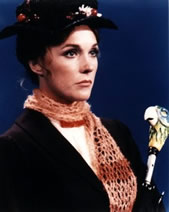
On July 4th Cristy and I spent the afternoon with our friends the Gilberts. David and Michelle have four young girls age 4 months to 5 years. About three days a week Cristy goes over with Isaiah to walk and visit with Michelle and the girls. David pastors at Second Presbyterian church here in Yazoo City. Over the course of the last year and a half we've all grown quite close as friends. We've even joked about an arranged marriage between their newest daughter Savanah and Isaiah. So yesterday we enjoyed the fouth of July holiday at their home, complete with BBQ, coleslaw, baked beans, apple pie, etc.
During the festivities I walked back into the girls' playroom to see what they were up to. As you can imagine, there were toys all about, stuffed bears, kittens, puppies, bows, naked barbies, baby dolls (I fear for Isaiah three days a week), hair brushes, beauty play things, etc. The girls were watching the old Disney movie Mary Poppins on the television and it was just coming to the end of the movie when I caught an interesting conversation between Mary and her umbrella just as she's about to leave. She looks on happily but sadly as the children she has nannied run off hand-in-hand with their father to "go fly a kite." The conversation goes...
Umbrella: "That's gratitude for you. Didn't even say good-bye"
Mary: "No, they didn't"
Umbrella: "Look at them. You know, they think more of their father than they do of you."
Mary: "That's as it should be."
The last time I saw this movie was probably about 15 years ago, but now, watching it as an adult, this last part of the movie struck me as significant.
For those who have never seen the movie I shall summarize. The story takes place in 1910 in England at the home of the Banks family. The father, George, is a busy and successful businessman in the banking world, while the mother is heavily involved in the women's liberation movment. As a result of their busy and disconnected their two children, Jane and Michael, are quite literally being raised by an endless barrage of Nannies, all of whom don't last very long because of their frustration with the two children. One day the "wind" changes and in walks (or rather "flies") this mysterious and fascinating woman named Mary Poppins, ready to take the Job of Nanny for the Banks family. She engages in the task of being their Nanny, but not in the traditional way. Her methods of teaching the children ultimately serve to "mend" the whole family. She teaches the children and at the same time she teaches the parents so that at the end of the movie she leaves having accomplished her work. The parents, especially the father, come to realize the priority of loving and raising their kids personally. Mary Poppins silently slips from the scene with a smile on her face and a sense of accomplishment.
Now, this is just a silly movie, and, of course, not everything corresponds. Mary Poppins referrs to herself in the movie as "practially perfect in every way." There's words like "supercalifragilisticexpialadocious" and people flying around with umbellas, but aside from all of the fantasy and frilly things there's a profound point that even the secular world realizes here. Parents have the first and foremost responsibility to love and train their children. The most profound molding and shaping influence in a child's life will be his parents, particularly his father.
Malachi 4:5-6 "Behold, I am going to send you Elijah the prophet before the coming of the great and terrible day of the LORD. He will restore the hearts of the fathers to their children and the hearts of the children to their fathers, so that I will not come and smite the land with a curse."
It is unfortunate that the current sentiment in most churches today is that a youth director is "needed." It seems that most parents assume that their "teenagers" are going to be rebellious, hard-headed, and rough during the sensitive and influential years of 13-18. They expect that this will happen and so they shoot for that mark. But the sad truth is that anytime one shoots to miss he will hit every time. So to rememdy the problem a youth director is sought out; someone who the child can "relate to." And so someone is brought in who is supposed to become the spiritual mentor of the children to whom he is serving, thus winning their hearts.
Now, let me say, I don't necessarily have a problem with brothers and sisters in Christ being spiritual mentors to younger people within the church. This is scriptural and good. But what bothers me is when a child begins to esteem, respect and, in all practicallity, look up to his youth director more than his father and mother. This is not how the covenant family is supposed to function. It is supposed to be a home where the gospel is proclaimed and taught personally. It is to be the institution of a "little church" where the father serves as the guiding shepherd of his family. The ages of 13-18 ought to be the ages where fathers are winning the hearts of their children, not a young college graduate.
But, sadly, this is not how things have progressed over the past decades. Parents all-too-often assume that their children will rebel and not respect them during the teenage years, and children do just that. So the fact of the matter is that someone else is needed. The question is "Needed to do what?"
That's what struck me about the closing words of Mary Poppins. She came to do a job in the Banks family, and that job was very specific. She was not there to win over the children and draw them further away from their father. For a season she filled the gaps where he was not present, but all the while she was carefully working to remold the childrens' thinking and the thinking of their father's. The result is that, at the end of the movie, she fades into the background while the affections of the children are once again returned to their father, and the affections of the father are once again returned to his children.
Now this, of course, does not address the excpetions. This is not talking about homes where there is no father, or the father is not a believer. Indeed, in these situations there is a real need for someone to fill the gaps, and perhaps more permanently. This is rather addressing the covenant family where the father and mother are faithful believers.
The average youth director is in a church 2-3 years, but fathers are normally there much longer. How much stronger our families and young people would be if every youth director out there learned from Mary Poppins. How much better things would be if we worked with the goal of eliminating our own jobs.

1 comment:
I'm a new parent, so I try, with great humility, to speak on this subject. But having done youth work now for two years I can say this with confidence; the "traditional" approach to youth work is greatly lacking.
Now, granted, I know many people who have been blessed by the youth ministers in their lives. And there are always those on the "fringes" who really don't have families and truly do need others to fill that gap. But the ideal is godly and loving fathers filling the spiritual and emotional needs of their sons and daughters. We don't have to assume that a child will become rebellious when they become teenagers. I've seen first-hand families that aren't like that.
So, to quote a friend of mine, a youth minister is really just a "band-aid." The real issue the church should be addressing is fathers being fathers. I'm not saying "fire every youth worker," but ideally every youth worker out there would work to turn the hearts of the kids they influence back towards their fathers and mothers.
Post a Comment